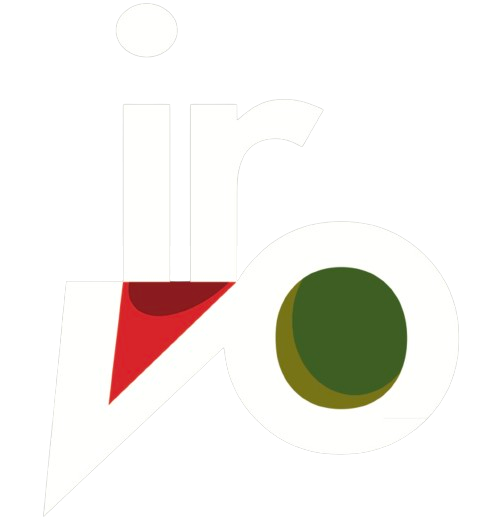20 December 2012
The beloved cellars of Sicily, the reflection of an expert
The managers of Banca Mediolanum, in agreement with IRVOS, have chosen a cellar for their end-of-year meeting. The National Order of Architects and Engineers is organizing its meeting in Sicily for next February and is contacting IRVOS to find an appropriate venue that is connected to the wineries and the world of wine. Art seeks wine.
Travelers, professionals, writers, wine lovers. Many knock on the door of this still little-known protagonist of modernity and he, still immersed in his fermentation travails, distracted and inebriated by his own perfume and the soft colors of his barrels, turns curiously, and has a sly look, a smiling, good expression, does not hide his joy in seeing that Man who wants to discover his secret and silent beauty.
Knowing about wine today belongs to the sphere of desires that fall within the needs of contemporary man. In a world increasingly crowded with media messages, advertising, "real time" news and so on, in an expansion of the offer that has no precedent in the history and customs of our island, knowledge becomes more and more a need and a need. The desire to know is mainly aimed at production systems, from the vineyard to winemaking, to then arrive at the recognition of the elements of taste in the glass, the right combinations, the rules of good drinking and why not the enjoyment of wine.
The connecting element between knowledge relating to different industrious human ingenuities, the professions, is identifiable in quality. Quality, a word of Latin origin, is the way of being, the property, the nature, that is, "what a thing is". Analysis in substance, as the principle and regeneration of a human orientation process. The contemporary man who wants to develop his own autonomous interpretative position to orient himself in the crowded market of modernity. Here then the demand for the food quality of wine can be traced back with evident immediacy to the satisfaction of a primary human need.
Human talk around the question of wine translates into talk about the alchemy of transformation. Wine is in fact the symbolic element of transformation. Thought tries to satisfy the emergency of the perception of a state of crisis, of which all the media give clear confirmation, introducing the possibility of transformation, with the intention of deciphering a code that allows it to manage its own process of change by constructing it and the recovery of a new adaptive balance. The sequences envisaged in this part of the experience of living, of which history confirms the evidence of a human condition in millenary times and places, are the same consequences that mature in the process of transformation of the must into wine, that is, it is the trace of how nature equips its alchemical processes of change, to ultimately achieve what? To a new balance, a new harmony, which has improved the elements that originally determined it, and which retains the memory of those origins in all its features. This is why we want to recognize fruit in today's wine, this is also the probable explanation of all this new demand for natural, biodynamic wines, often beyond the possible scientific justifications themselves: we want to perceive the alchemical message in all its true essence, without contamination and alterations of human intervention which today, perhaps, is little trusted. You want to do it alone, as in moments marked by worry, you want to take risks yourself and you want to rely on what is most reassuring you can identify. At the last human refuge, primordial motherhood expressed in the rules of nature and its eternal ability to regenerate.
So in effect what we touch upon when we place wine at the center of the question is of very broad scope, the wine of sacredness which is renewed every Sunday in the miracle of millions of faithful who gather in the evocation of the Christian religion, is not made of polyphenols, even if that's what the production technicians know and want to talk about. Starches, sugars and calories are not measured in bread and wine, symbolic elements of Christianity. When we discuss wine, in the comforting shadows of the barrel cellars, of the wine abbeys, in the austere temples of what in the past marked the days of the monks and of their reflections on time and man, we evoke something that within man lives in the space of its values and its possible explanations on the meaning of existence and the human condition.
How I drink, how I eat, and above all what, if not with whom, make me the man I freely decide to be. Here, in this choice, which is within the reach of all those who have sufficient elements of knowledge to be able to govern it, lies a contemporary concept of freedom. This space which belongs to the body and the mind deserves to be nourished because it can be a space for growth in the process of new formation of contemporary man who will have to re-establish himself in a Mediterranean key without transcending everything that has been. Of course, in the face of the socio-political difficulties and disappointments of contemporary times, there is a widespread feeling, inevitably frustrating, of imagining Scandinavian models which, although more efficient, do not belong to us and are even less capable of understanding and reproducing.
In the context thus described, the new formula of conviviality appears, which in the memory of the good Plato, takes us back to a question that arises from the moderate use of wine, which stimulates and sharpens thought and takes back the time for conversation and reflection. Thus wine becomes a meeting, debate, discussion, and becomes art, music, reading, in its places which are the cellars, with its protagonists who are obviously the producers, with its narrators who are that human multitude who daily perceive and manages processes of sociality to build those invisible and magnificent works that honor the human being and which in a possible synthesis are expressed in the always beloved civilization.
Dario Di Bernardi / Wine Tourism Office
Ultime notizie
News 9 January 2025
Public Consultation Update PTPCT IRVO 2025-2027
Public consultation for the purpose of updating the Three-Year Plan for the Prevention of Corruption and Transparency (PTPCT) 2025/2027 In order to allow maximum involvement in the preparation of the update of the Three-Year Plan for the Prevention of Corruption and Transparency of the Regional Institute of Wine and Oil for the three-year period 2025/2027, all those who are interested are invited - in particular citizens, companies, consumer associations, representative trade unions, other entities operating in the territory representing particular interests - to send observations and/or proposals to the Person in Charge of the Prevention of Corruption and Transparency (RPCT), which will be evaluated when drafting the document.


